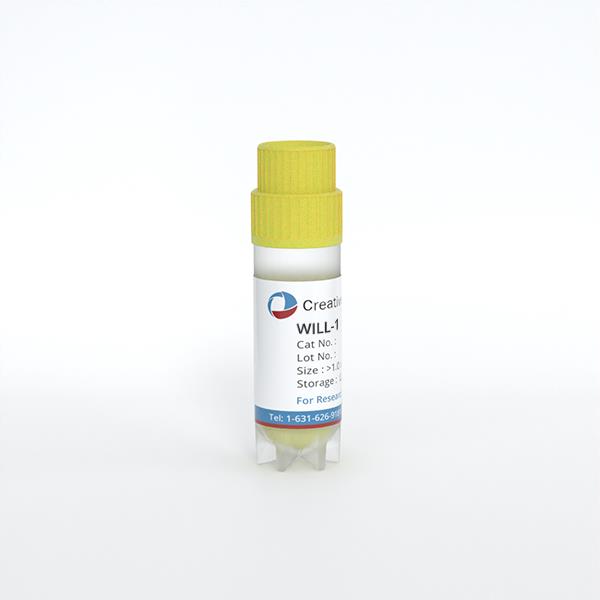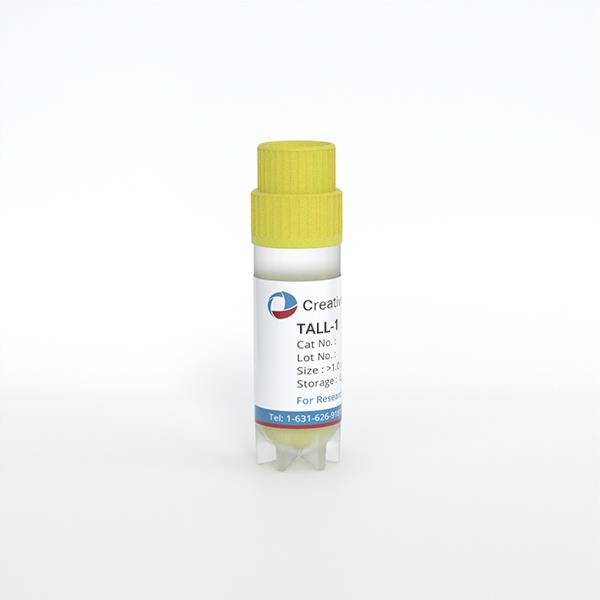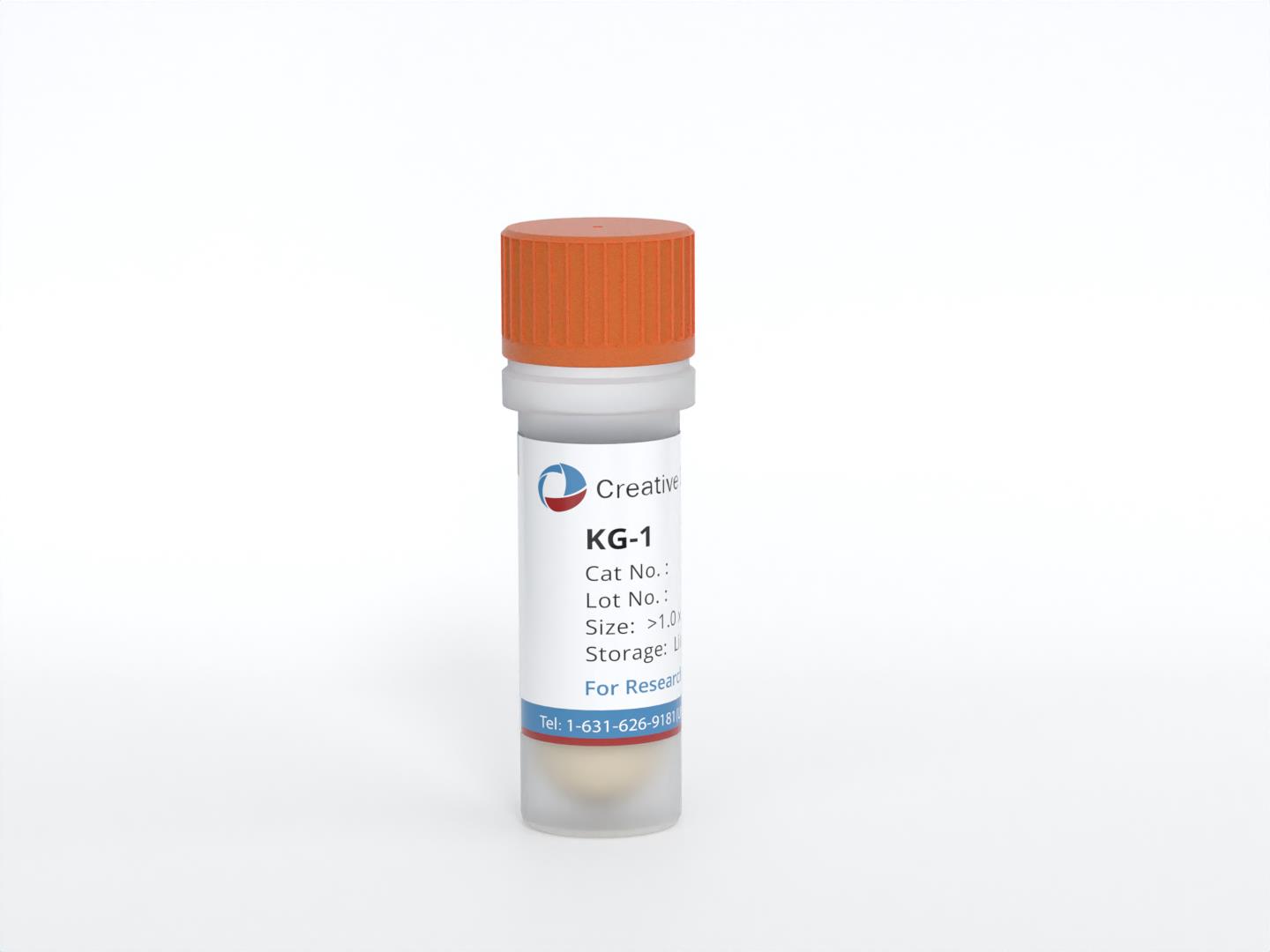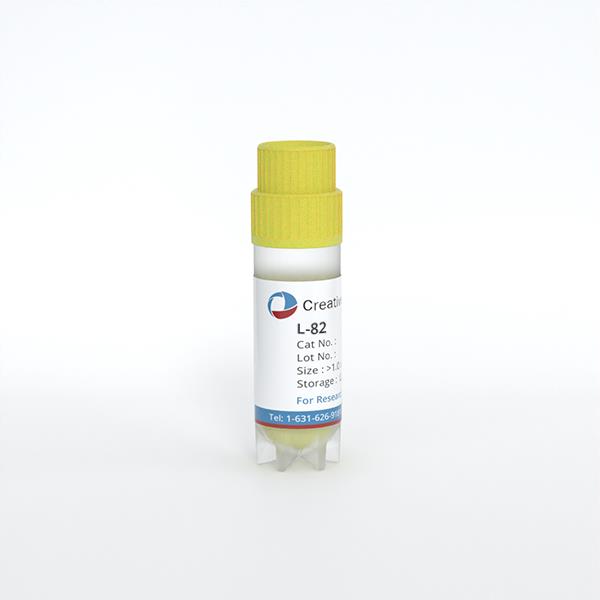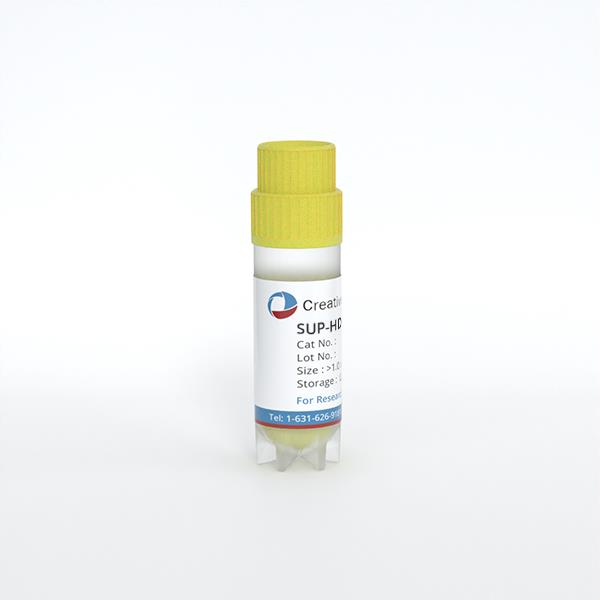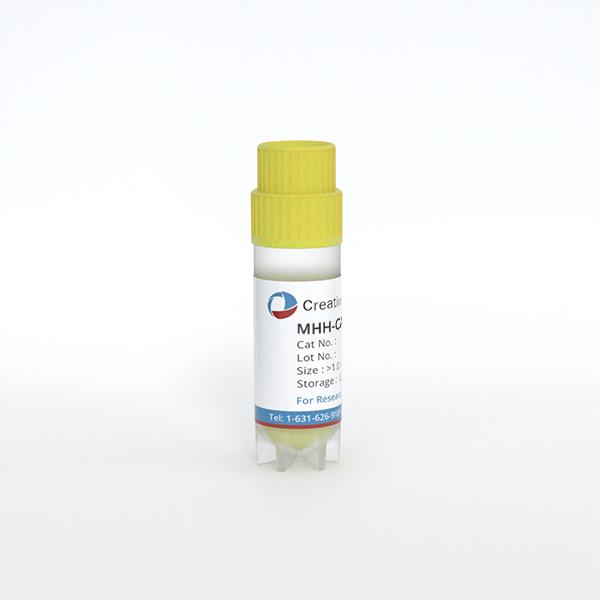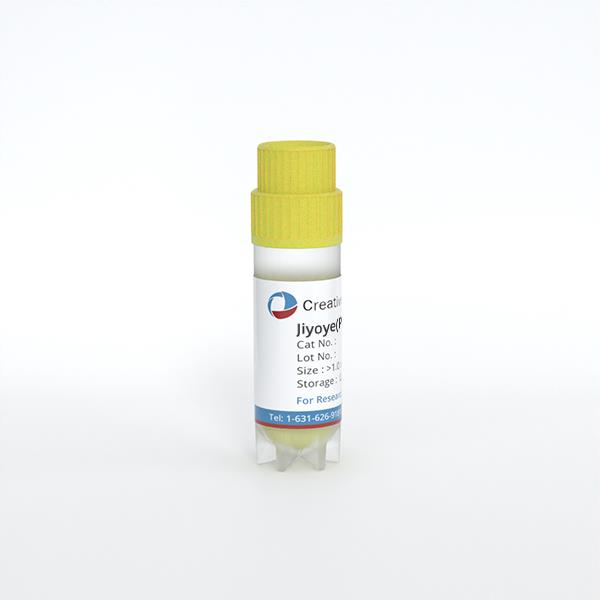
Jiyoye(P-2003)
Cat.No.: CSC-C9454L
Species: Homo sapiens (Human)
Source: Ascites
Morphology: lymphoblast
Culture Properties: suspension
- Specification
- Q & A
- Customer Review
Cat.No.
CSC-C9454L
Description
Species: human - male, Black, African
Isoenzyme: G6PD, B
Histocompatibility: HLA A32, B17, Bw37
Production: EBV
Histopathology: Burkitt's lymphoma
Note: The cells carry and produce Epstein-Barr virus (EBV); EBNA positive; Biological Safety Class II
Isoenzyme: G6PD, B
Histocompatibility: HLA A32, B17, Bw37
Production: EBV
Histopathology: Burkitt's lymphoma
Note: The cells carry and produce Epstein-Barr virus (EBV); EBNA positive; Biological Safety Class II
Species
Homo sapiens (Human)
Source
Ascites
Culture Properties
suspension
Morphology
lymphoblast
STR DNA Profile
D3S1358: 16,17
vWA: 15,19
FGA: 23,24
Amelogenin: X,Y
TH01: 7,9
TPOX: 6,8
CSF1P0: 10,11
D5S818: 12
D13S317: 12
D7S820: 8,10
vWA: 15,19
FGA: 23,24
Amelogenin: X,Y
TH01: 7,9
TPOX: 6,8
CSF1P0: 10,11
D5S818: 12
D13S317: 12
D7S820: 8,10
Disease
EBV-Related Burkitt Lymphoma
Quality Control
Tests for mycoplasma, bacteria and fungi were negative
Storage and Shipping
Frozen with 52.5% RPMI-1640, 40% FBS, 7.5% DMSO at about 4-5 x 10^6 cells/ampoule; ship in dry ice; store in liquid nitrogen
Synonyms
Jiyoye; JIYOYE; Jijoye; JIJOYE; P-2003; P3 (Jiyoye); P-3-Jijoye; P3-Jiyoye; P-3J; P3J; Jiyoye (P-2003); JiyoyeP-2003; JIYOYEP2003; OB2; GM04678
Citation Guidance
If you use this products in your scientific publication, it should be cited in the publication as: Creative Bioarray cat no.
If your paper has been published, please click here
to submit the PubMed ID of your paper to get a coupon.
Ask a Question
Write your own review
- You May Also Need
Related Products
Featured Products
- Adipose Tissue-Derived Stem Cells
- Human Neurons
- Mouse Probe
- Whole Chromosome Painting Probes
- Hepatic Cells
- Renal Cells
- In Vitro ADME Kits
- Tissue Microarray
- Tissue Blocks
- Tissue Sections
- FFPE Cell Pellet
- Probe
- Centromere Probes
- Telomere Probes
- Satellite Enumeration Probes
- Subtelomere Specific Probes
- Bacterial Probes
- ISH/FISH Probes
- Exosome Isolation Kit
- Human Adult Stem Cells
- Mouse Stem Cells
- iPSCs
- Mouse Embryonic Stem Cells
- iPSC Differentiation Kits
- Mesenchymal Stem Cells
- Immortalized Human Cells
- Immortalized Murine Cells
- Cell Immortalization Kit
- Adipose Cells
- Cardiac Cells
- Dermal Cells
- Epidermal Cells
- Peripheral Blood Mononuclear Cells
- Umbilical Cord Cells
- Monkey Primary Cells
- Mouse Primary Cells
- Breast Tumor Cells
- Colorectal Tumor Cells
- Esophageal Tumor Cells
- Lung Tumor Cells
- Leukemia/Lymphoma/Myeloma Cells
- Ovarian Tumor Cells
- Pancreatic Tumor Cells
- Mouse Tumor Cells
Hot Products
